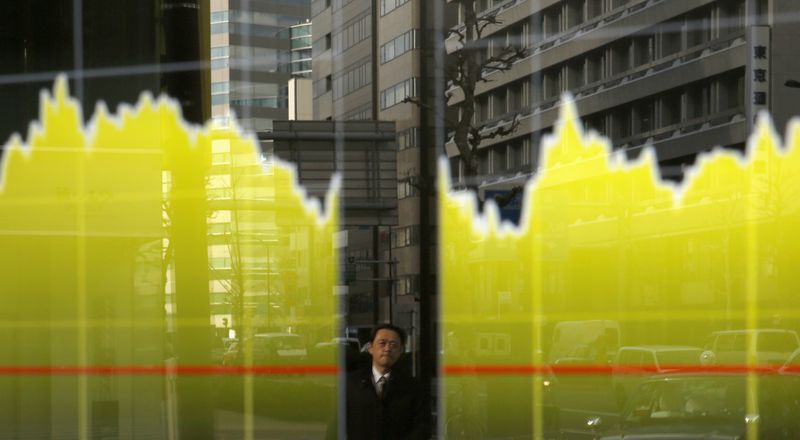Paul Tudor Jones sees potential market rally after late October
* Hits one-month low, records biggest fall in 3 months
* Shipper, airliners hit most; yen gain hurts exporters
* Oil companies gain on higher crude prices
By Hideyuki Sano
TOKYO, Jan 6 (Reuters) - Japan's Nikkei share average fell
to a one-month low on Monday as selloff gripped the market on
the first trading day of 2020 on fears of an escalation in
U.S-Iran tensions.
U.S. President Donald Trump on Sunday threatened a "major
retaliation" against Iran if Tehran were to hit back for the
killing of one of its top military commanders.
The Nikkei share average .N225 fell 1.91% to 23,204.86,
breaking below two-major support levels - 25-day moving average
around 23,600 and 50-day average around 23,350 - to its lowest
level since Dec. 4.
The broader Topix .TOPX lost 1.39% to 1,697.49, its lowest
close since late November. The Tokyo stock market was closed
from Tuesday to Friday last week for New Year holidays.
Both the Nikkei and Topix marked their biggest fall in three
months, with 1,835 out of 2,161 listed stocks on the main board
in the red, the highest ratio in three months.
"The market will have to go through some correction. It was
a bit overvalued to begin with, but the problems in the Middle
East are the main drag now," said Nobuhiko Kuramochi, chief
strategist at Mizuho Securities.
Concerns about a further escalation in the Middle East
tension hit shippers .ISHIP.T and airlines .IAIRL.T , which
fell 3.5% and 2.8%, respectively.
Two Nikkei heavyweights, SoftBank 9984.T and Fast
Retailing 9983.T , also posted fairly large fall of 3.9% and
As the yen gained on safe-haven buying, a wide range of
exporter shares took a hit. Honda Motor 7267.T fell 3.0%,
while Toyota Motor Corp 7203.T dropped 1.9%.
Meanwhile, a spike in oil prices helped oil companies, with
the Tokyo Stock Exchange's oil and coal producer index
.IPETE.T rising 2.9%. Inpex 1605.T rose 4.1% while JXTG
5020.T gained 3.4%.
Nissan Motor 7201.T fell 1.7%, in line with the overall
market, to an eight-year low. Its former chairman Carlos Ghosn
fled Japan while on bail during Japan's market holidays.
Ghosn faced four charges - which he has denied - including
hiding income and enriching himself through payments to
dealerships in the Middle East. Nissan had sacked him as chairman saying internal
investigations revealed misconduct including understating his
salary while he was its chief executive, and transferring $5
million of Nissan funds to an account in which he had an
interest.
